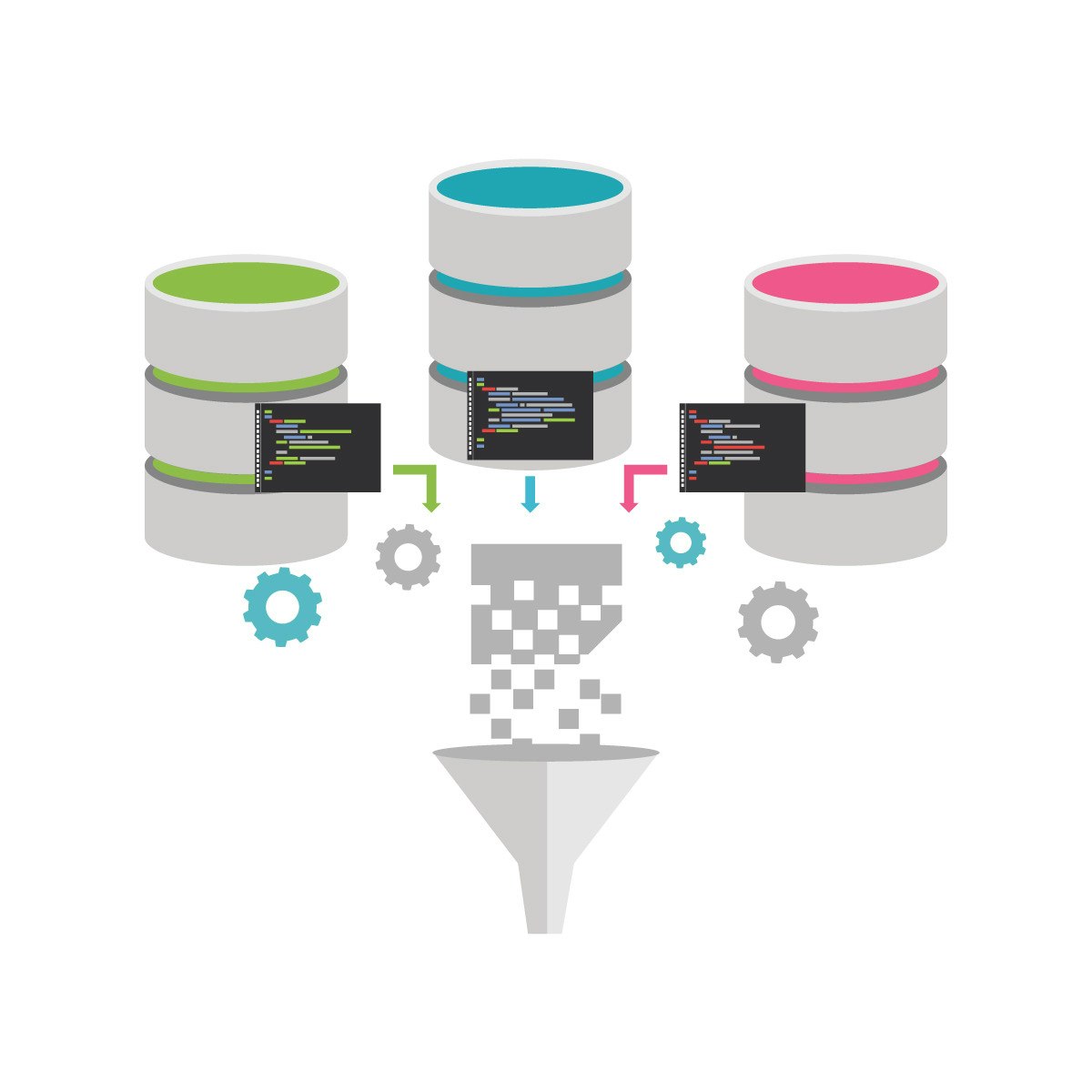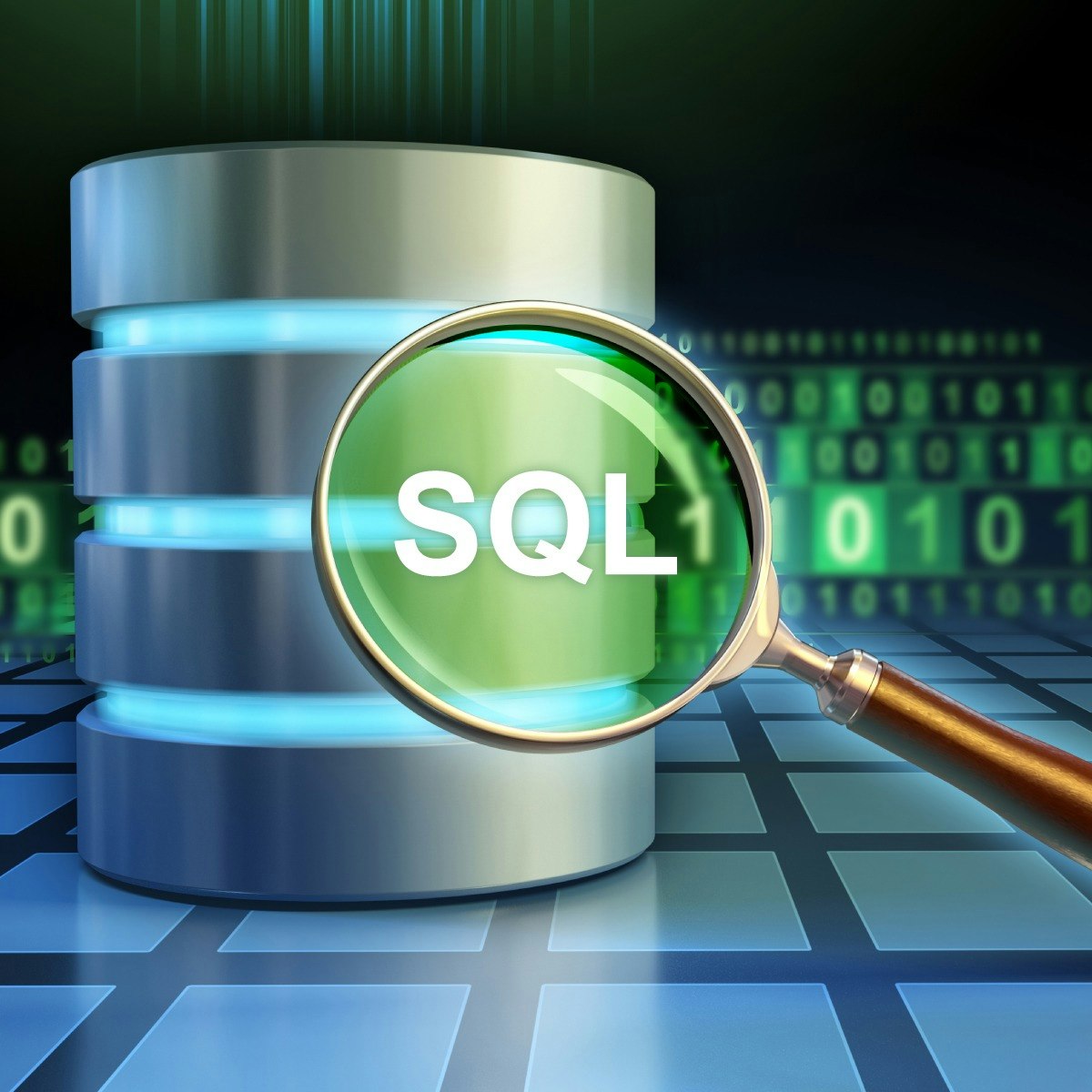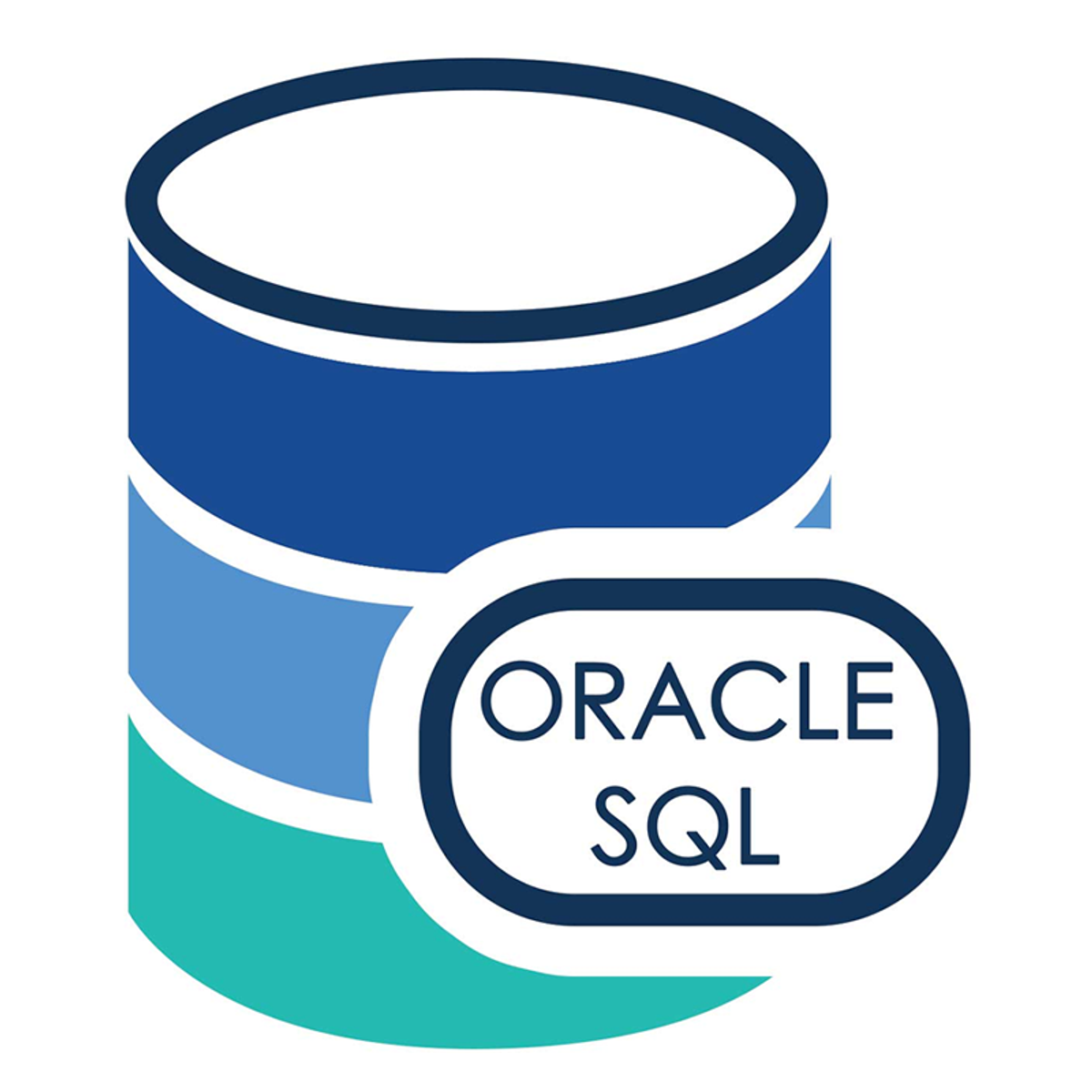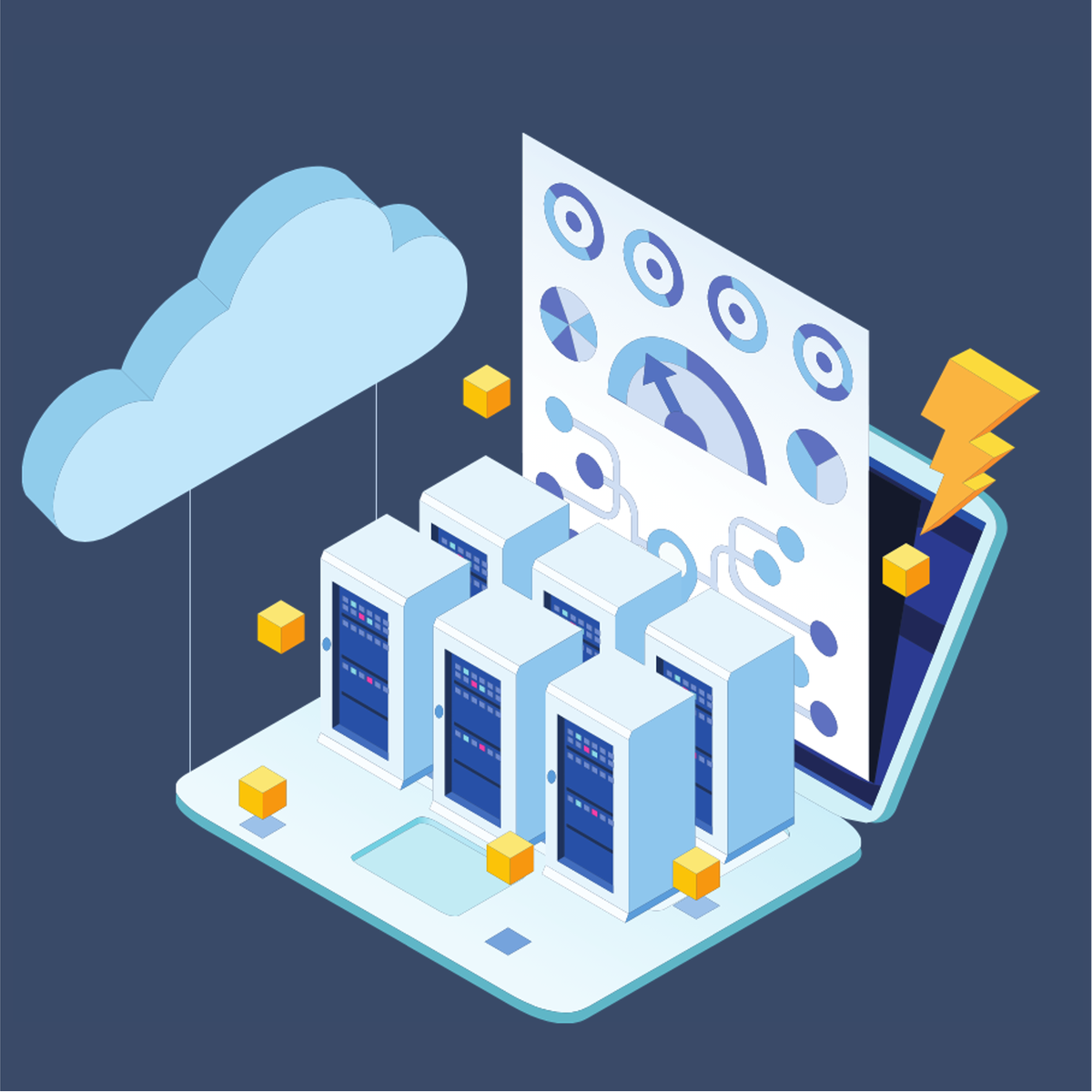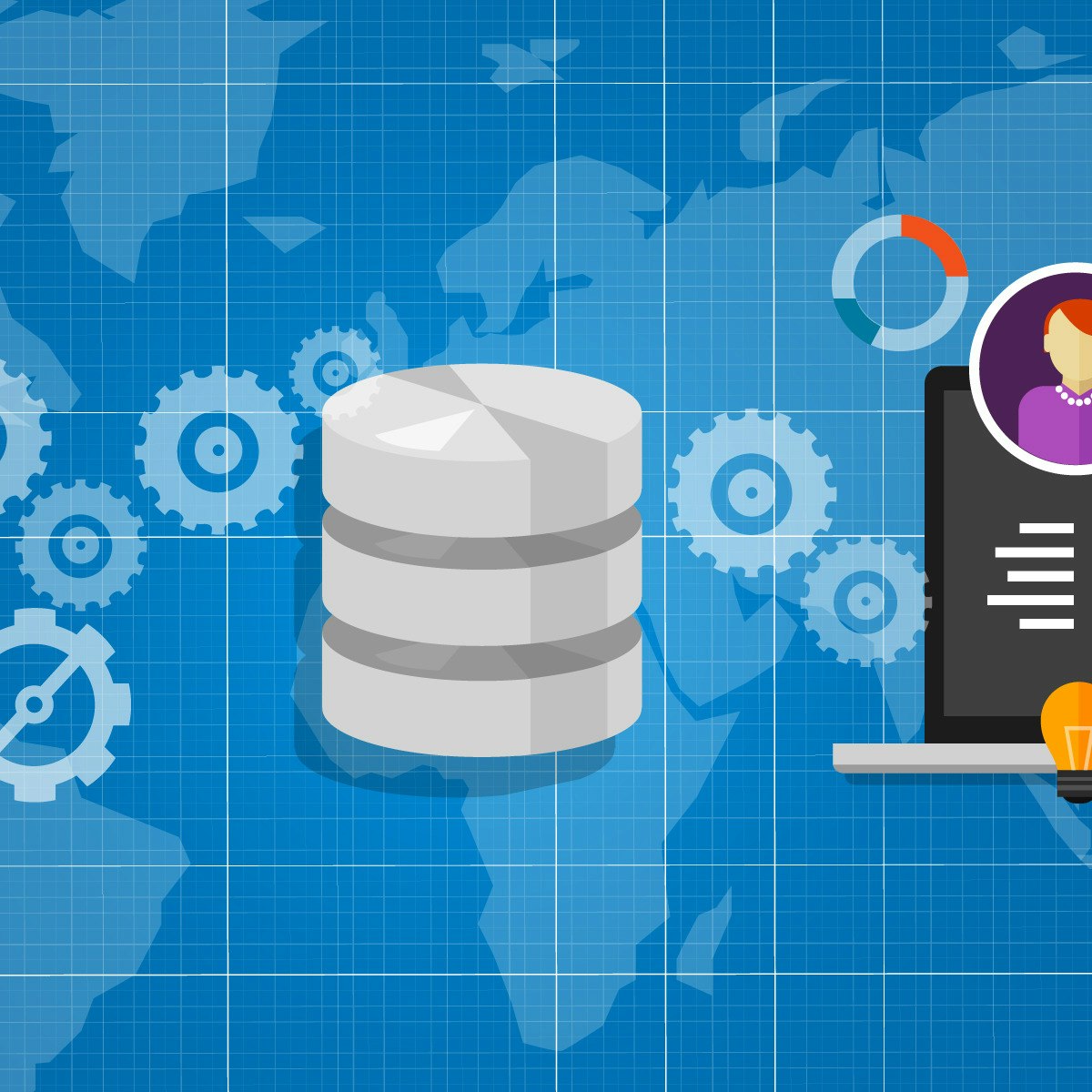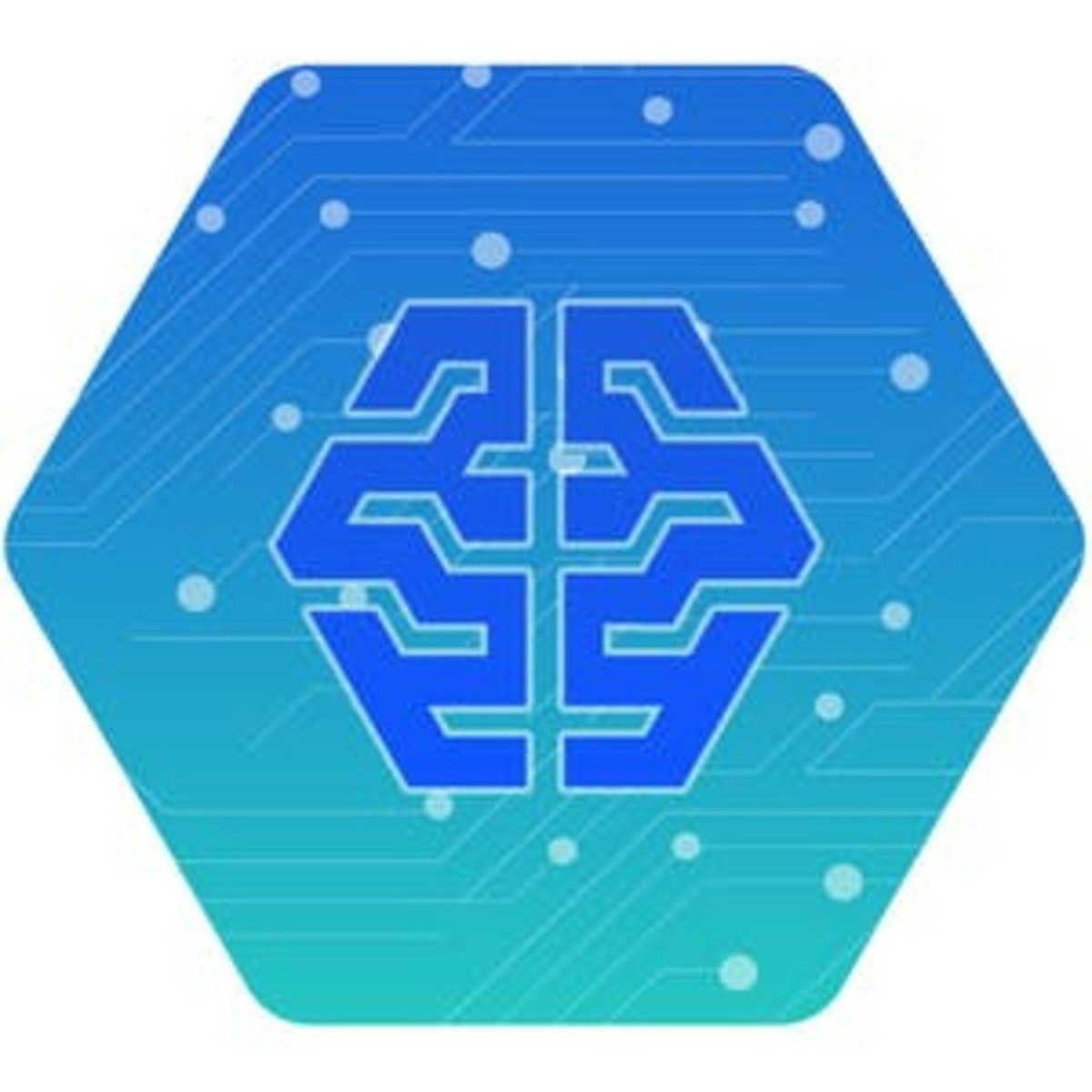Data Engineer
Exploring a Career as a Data Engineer
Data Engineering is a specialized field within technology focused on building and maintaining the systems that allow organizations to collect, store, process, and analyze large volumes of data. Think of Data Engineers as the architects and plumbers of the data world; they design the blueprints for data infrastructure and ensure the smooth flow of data through complex pipelines, making it ready for use by others like Data Scientists and Business Analysts.
Working as a Data Engineer can be exciting. You'll tackle complex technical challenges, design robust systems capable of handling massive datasets, and play a crucial role in enabling data-driven decisions. The field is constantly evolving with new tools and technologies, offering continuous learning opportunities. Many find satisfaction in building the foundational systems that unlock the value hidden within data.
Understanding the Role of a Data Engineer
What Exactly Does a Data Engineer Do?
At its core, Data Engineering involves creating the infrastructure and systems necessary for efficient data handling. This means designing databases, building data pipelines to move data from various sources to a central repository (like a data warehouse or data lake), and transforming raw data into a clean, usable format. They ensure data is reliable, accessible, and secure.
Data Engineers are essential for any organization aiming to leverage its data assets effectively. Without well-engineered data systems, extracting meaningful insights becomes difficult, if not impossible. They lay the groundwork for data analysis, machine learning, and business intelligence initiatives.
The field requires a blend of software engineering skills, database knowledge, and an understanding of data management principles. It's a technical role that demands strong problem-solving abilities and attention to detail.
Data Engineering vs. Data Science vs. Data Analysis
While the terms are sometimes used interchangeably, Data Engineering, Data Science, and Data Analysis represent distinct roles with different focuses. Data Engineers build and maintain the data infrastructure. They focus on the systems for data flow, storage, and processing.
Data Scientists, on the other hand, use the prepared data to build complex analytical models, often involving machine learning, to uncover insights, make predictions, and solve complex business problems. They rely heavily on the clean, accessible data provided by Data Engineers.
Data Analysts typically focus on exploring and interpreting data to identify trends, create reports, and generate business insights using existing tools and dashboards. They work with the data that Data Engineers have made available and often use simpler analytical techniques compared to Data Scientists.
Think of it like building a car: the Data Engineer designs and builds the engine and chassis (the data infrastructure), the Data Scientist uses the car for advanced racing and performance tuning (complex modeling), and the Data Analyst drives the car daily and reports on its performance (reporting and basic analysis).
A Brief History of Data Engineering
Data Engineering as a distinct field emerged relatively recently, driven by the explosion of "Big Data." Initially, tasks now associated with Data Engineering were often handled by Software Engineers or Database Administrators. The rise of technologies like Hadoop and Spark, designed to handle massive datasets, created a need for specialists.
Early data systems focused on batch processing within data warehouses. However, the increasing velocity and variety of data sources (like social media feeds, IoT devices) necessitated new approaches, leading to the development of data lakes and real-time processing capabilities.
Cloud computing platforms have further revolutionized the field, offering scalable infrastructure and managed services that simplify many traditional data engineering tasks. This evolution continues today with trends like data mesh and increased focus on automation and AI in data pipelines.
Where Do Data Engineers Work?
Data Engineers are in demand across nearly every industry that collects and uses data. Technology companies, from startups to large corporations like Google, Meta, and Amazon, are major employers. Financial services, healthcare, retail, e-commerce, entertainment, and manufacturing sectors also heavily rely on Data Engineers.
Any organization dealing with significant amounts of data, whether for customer insights, operational efficiency, product development, or compliance, needs Data Engineers. Government agencies and research institutions also employ professionals in this role to manage their vast datasets.
The specific industry can influence the type of data and challenges encountered. For example, a Data Engineer in finance might focus on transactional data and regulatory compliance, while one in healthcare might deal with sensitive patient data and strict privacy regulations.
Key Responsibilities of a Data Engineer
Designing and Maintaining Data Pipelines
A core responsibility of Data Engineers is designing, building, and maintaining data pipelines. These pipelines are automated systems that move data from its source (e.g., application databases, log files, APIs, sensors) to a destination where it can be stored and analyzed (e.g., a data warehouse or data lake).
Designing a pipeline involves choosing appropriate tools and technologies based on data volume, velocity, and variety. It requires understanding data formats, scheduling jobs, handling errors, and ensuring data quality throughout the process. Maintenance involves monitoring pipeline performance, troubleshooting issues, and updating systems as requirements change.
These pipelines are the lifelines of data-driven organizations, ensuring that fresh, reliable data is continuously available for analysis and decision-making. Effective pipeline design balances efficiency, reliability, and cost.
Optimizing Database and Data Storage Architecture
Data Engineers are often involved in designing and optimizing the underlying storage systems, such as databases (SQL and NoSQL), data warehouses, and data lakes. This involves choosing the right storage solution based on the type of data and how it will be accessed.
Optimization includes tasks like designing efficient database schemas, implementing indexing strategies to speed up queries, partitioning large tables, and managing storage costs. They ensure that data retrieval is fast and efficient for analysts and applications.
They must understand the trade-offs between different database technologies (e.g., relational vs. non-relational) and architectures (e.g., data warehouse vs. data lake vs. lakehouse) to select the best fit for the organization's needs.
These courses provide a good foundation for understanding database concepts and data modeling, which are crucial for architecture optimization.
For further reading on data modeling patterns and warehousing, consider these books.
Implementing ETL and ELT Processes
ETL (Extract, Transform, Load) and ELT (Extract, Load, Transform) are two common patterns for moving and preparing data. Data Engineers implement these processes within data pipelines. ETL involves extracting data from sources, transforming it (cleaning, formatting, aggregating) in a staging area, and then loading it into the target system (often a data warehouse).
ELT, often associated with data lakes and modern cloud data warehouses, involves extracting data, loading it directly into the target system in its raw or semi-raw state, and then transforming it within the target system using its processing power. Data Engineers choose the appropriate pattern based on tools, data volume, and infrastructure.
Mastering ETL/ELT involves proficiency in relevant tools (like Informatica, Talend, or cloud-native services) and scripting languages (like Python or SQL) to automate these workflows efficiently and reliably.
The following courses cover ETL, ELT, and data pipeline construction using various tools and techniques.
Collaborating with Data Consumers
Data Engineers don't work in isolation. They collaborate closely with data consumers, including Data Scientists, Data Analysts, Business Intelligence (BI) developers, and software engineers who build data-driven applications. Understanding the needs of these stakeholders is crucial.
This collaboration involves gathering requirements for data access, defining data schemas, ensuring data quality meets analytical needs, and troubleshooting data-related issues. Effective communication skills are vital for translating technical concepts and requirements between different teams.
By working together, Data Engineers ensure the infrastructure they build effectively supports the organization's analytical and operational goals, making data accessible and useful for those who need it.
Ensuring Data Governance and Quality
Maintaining data quality and adhering to data governance policies are critical aspects of Data Engineering. This includes implementing processes to validate data accuracy, consistency, and completeness as it flows through pipelines.
Data governance involves managing data access controls, ensuring compliance with privacy regulations (like GDPR or CCPA), managing metadata (data about data), and establishing data lineage (tracking data origins and transformations). Data Engineers often work with data governance teams to implement technical solutions that enforce these policies.
Poor data quality or governance can lead to flawed analysis, bad business decisions, and potential legal or reputational risks. Data Engineers play a key role in building trust in the organization's data.
These courses offer insights into data preparation, cleaning, and ethical considerations in data science, which are relevant to governance and quality.
Essential Data Engineering Tools and Technologies
Database Systems (SQL and NoSQL)
Proficiency in database systems is fundamental for Data Engineers. This includes traditional Relational Database Management Systems (RDBMS) that use SQL (Structured Query Language), such as PostgreSQL, MySQL, and SQL Server. SQL is essential for querying, manipulating, and defining data in these systems.
Data Engineers also work extensively with NoSQL databases, which offer flexible data models and scalability for specific use cases (e.g., large unstructured datasets, high-velocity data). Examples include document databases (MongoDB), key-value stores (Redis), wide-column stores (Cassandra), and graph databases (Neo4j).
Understanding the strengths and weaknesses of different database types allows engineers to choose the right tool for managing various kinds of data effectively.
These courses provide introductions and practical skills in SQL and specific database systems like Oracle and MongoDB.
Big Data Frameworks (e.g., Spark, Hadoop)
Handling "Big Data"—datasets too large or complex for traditional databases—requires specialized frameworks. The Hadoop ecosystem (including HDFS for storage and MapReduce for processing) was foundational in this area, though its components are often used alongside newer tools.
Apache Spark is currently a dominant framework for large-scale data processing. It offers faster in-memory processing compared to MapReduce and provides APIs for various languages (Scala, Python, Java, R) and libraries for SQL (Spark SQL), streaming data (Structured Streaming), machine learning (MLlib), and graph processing.
Familiarity with these frameworks and their concepts (like distributed computing, fault tolerance) is essential for processing and analyzing massive datasets efficiently.
These courses cover foundational big data concepts and specific frameworks like Spark.
Cloud Platforms and Services
Cloud computing platforms like Amazon Web Services (AWS), Microsoft Azure, and Google Cloud Platform (GCP) are central to modern data engineering. They offer scalable infrastructure (storage, compute) and a wide range of managed services for databases, data warehousing, data lakes, ETL, streaming, and machine learning.
Data Engineers leverage these platforms to build flexible, scalable, and often cost-effective data solutions. Skills involve provisioning resources, configuring services (like AWS S3, Redshift, Glue; Azure Data Lake Storage, Synapse Analytics, Data Factory; Google Cloud Storage, BigQuery, Dataflow), managing security, and optimizing costs.
These courses provide introductions to cloud platforms and specific data engineering services within them.
Workflow Orchestration Tools
Data pipelines often consist of multiple tasks with complex dependencies. Workflow orchestration tools automate the scheduling, execution, monitoring, and management of these tasks. They ensure that tasks run in the correct order, handle failures gracefully, and provide visibility into pipeline status.
Apache Airflow is a widely used open-source orchestrator. Other popular tools include Prefect, Dagster, and cloud-native services like AWS Step Functions, Azure Data Factory pipelines, and Google Cloud Composer (which is based on Airflow).
Understanding how to define workflows (often as code), manage dependencies, set schedules, and monitor execution using these tools is a key skill for managing complex data engineering processes.
These courses specifically cover workflow orchestration using popular tools like Airflow.
Emerging Tools and Concepts
The field of data engineering is constantly evolving. New tools, technologies, and architectural patterns emerge regularly. Staying current requires continuous learning.
Some emerging trends include the rise of the "Data Lakehouse" architecture (combining features of data lakes and warehouses), table formats like Apache Iceberg and Delta Lake that bring reliability features to data lakes, the concept of "Data Mesh" which promotes decentralized data ownership, and the increasing use of AI/ML for automating data engineering tasks.
While mastery of every new tool isn't expected, awareness of major trends and a willingness to learn and adapt are crucial for long-term success in data engineering.
This course explores the impact of Generative AI on the field.
Formal Education Pathways for Data Engineers
Relevant Undergraduate Degrees
A bachelor's degree in a quantitative field often serves as the foundation for a Data Engineering career. Computer Science is perhaps the most common background, providing essential programming, algorithms, and systems knowledge.
Degrees in Software Engineering, Computer Engineering, Information Technology, or related engineering disciplines are also highly relevant. Mathematics and Statistics degrees can also be a good starting point, especially if supplemented with strong programming and database skills.
While a specific "Data Engineering" undergraduate degree is rare, coursework in database management, data structures, algorithms, operating systems, networking, and software development principles provides a strong base.
Computer Science courses on OpenCourser can help build these foundational skills.
Specialized Master's and PhD Programs
For those seeking deeper specialization or aiming for research or more advanced roles, graduate studies can be beneficial. Master's degrees in Data Science, Computer Science (with a data focus), Business Analytics, or Information Systems often include relevant coursework.
Some universities are beginning to offer Master's programs specifically in Data Engineering or with a Data Engineering track. These programs delve deeper into distributed systems, cloud computing, advanced database technologies, and data pipeline architecture.
A PhD is typically pursued by those interested in research, academia, or pushing the boundaries of data engineering technologies, perhaps focusing on areas like distributed database design, novel data processing algorithms, or data privacy techniques.
The Role of Certification Programs
Professional certifications can validate specific skills and knowledge, particularly with cloud platforms. Major cloud providers (AWS, Azure, GCP) offer Data Engineering-specific certifications that are highly regarded by employers.
Examples include the AWS Certified Data Engineer - Associate, Microsoft Certified: Azure Data Engineer Associate (DP-203), and Google Cloud Certified - Professional Data Engineer. These certifications typically require passing an exam covering platform services, design principles, and best practices.
While certifications don't replace hands-on experience or a formal degree, they can be a valuable supplement, demonstrating commitment and proficiency in specific, in-demand technologies. Preparation often involves dedicated study and practical labs.
These courses are designed to help prepare for specific Data Engineering certifications.
University-Industry Partnerships
Many universities collaborate with industry partners to enhance their data engineering-related programs. This can take various forms, including guest lectures from industry professionals, capstone projects based on real-world problems, internship opportunities, and curriculum development influenced by industry needs.
These partnerships ensure that academic programs remain relevant and equip students with skills that are currently in demand. They can also provide valuable networking opportunities and pathways into employment.
Prospective students should investigate whether universities offer such industry connections, as they can significantly enrich the learning experience and improve career prospects upon graduation.
Self-Directed Learning for Data Engineering
Prioritizing Core Technical Skills
For those pursuing Data Engineering through self-study or career transition, focusing on core technical skills is crucial. Strong proficiency in Python and SQL is almost always required. Python is widely used for scripting, automation, and interacting with big data frameworks, while SQL is the standard for database querying.
Understanding database fundamentals (SQL and NoSQL), data warehousing concepts, and ETL/ELT principles is essential. Familiarity with Linux/Unix command-line basics is also very helpful, as many data tools run in these environments.
Start by building a solid foundation in these areas before moving on to more complex topics like specific big data frameworks or cloud platforms.
These courses offer introductions to essential skills like Python, SQL, and Linux for beginners.
Building a Portfolio with Projects
Practical experience is key. Since formal work experience might be lacking initially, building a portfolio of personal projects is vital for self-learners and career changers. These projects demonstrate your skills and ability to apply concepts.
Projects could involve building a data pipeline to collect data from public APIs, process it, and store it in a database; setting up a data warehouse using sample data; or experimenting with big data tools like Spark on a reasonably sized dataset. Focus on solving a specific problem or answering a question with data.
Document your projects clearly (e.g., on GitHub), explaining the problem, your approach, the tools used, and the outcome. A well-documented portfolio can be more persuasive than credentials alone.
Contributing to Open Source
Contributing to open-source data engineering projects (like Apache Spark, Airflow, dbt, etc.) is another excellent way to gain experience, learn from others, and build credibility. It demonstrates initiative and technical ability.
Start small by fixing bugs, improving documentation, or adding tests. As you become more familiar with a project's codebase and community, you can take on more significant contributions. This provides real-world software development experience in a collaborative setting.
Participation in open source can also lead to valuable networking opportunities and potentially catch the eye of recruiters familiar with the project.
Combining Theory with Practice
Effective self-directed learning involves balancing theoretical knowledge with practical application. Reading books, documentation, and taking online courses builds foundational understanding, but skills are solidified through hands-on practice.
Actively apply what you learn. If you learn about SQL joins, practice writing queries. If you study Spark concepts, run code on a small cluster (many cloud platforms offer free tiers or credits). Try to replicate examples and then modify them for your own small projects.
This iterative cycle of learning theory and immediately applying it helps reinforce concepts and builds practical problem-solving skills, which are essential for data engineering work.
OpenCourser offers a vast library of courses to build theoretical knowledge. Explore the Data Science and Tech Skills categories to find relevant learning materials.
These courses cover fundamental concepts and provide hands-on practice.
Validating Skills Without Formal Credentials
Without a traditional degree or extensive work history, demonstrating your capabilities requires effort. A strong project portfolio is the primary tool. Certifications, especially cloud-specific ones, provide external validation recognized by employers.
Active participation in online communities (e.g., Stack Overflow, specific tool forums, technical blogs) can showcase your knowledge and problem-solving skills. Networking, attending meetups (virtual or in-person), and informational interviews can help you connect with professionals and learn about opportunities.
Focus on clearly articulating your skills and experiences during interviews, relating your project work to real-world data engineering challenges. Technical interviews often involve coding challenges (SQL, Python) and system design questions, providing a direct way to demonstrate competence.
This course focuses specifically on career guidance and interview preparation for Data Engineers.
Data Engineering Career Progression
From Entry-Level to Senior Roles
A typical Data Engineering career path starts with entry-level or junior roles. In these positions, individuals usually work under supervision, focusing on specific tasks like building components of pipelines, writing ETL scripts, or managing smaller databases. The focus is on learning core technologies and processes.
With experience (typically 2-5 years), engineers progress to mid-level roles. They take on more complex projects, design parts of systems, troubleshoot challenging issues, and may mentor junior engineers. They have a broader understanding of the data ecosystem.
Senior Data Engineers (often 5+ years of experience) lead major projects, design complex architectures, make key technology decisions, mentor teams, and contribute to overall data strategy. They possess deep technical expertise and a strong understanding of business needs.
Specialization Paths
As Data Engineers gain experience, they may choose to specialize in specific areas. Common specializations include:
- Cloud Data Engineering: Focusing on building and managing data infrastructure within a specific cloud platform (AWS, Azure, GCP).
- Big Data Engineering: Specializing in frameworks like Spark and Hadoop for processing massive datasets.
- Streaming Data Engineering: Focusing on real-time data processing using tools like Kafka, Flink, or Spark Streaming.
- Machine Learning (ML) Engineering / MLOps: Bridging data engineering and data science, focusing on building pipelines and infrastructure to support ML model training and deployment.
- Data Warehouse / BI Engineering: Specializing in designing, building, and optimizing data warehouses and the ETL/ELT processes feeding them.
Specialization allows engineers to develop deep expertise in high-demand areas, often leading to higher compensation and more focused roles.
Management vs. Technical Leadership Tracks
At the senior level, Data Engineers often face a choice between two career tracks: management or continued technical leadership. The management track involves moving into roles like Data Engineering Manager or Director, focusing on leading teams, project management, strategy, and people development.
The technical leadership track involves roles like Principal Data Engineer or Staff Engineer. These individuals remain deeply technical, acting as high-level individual contributors, setting technical direction, solving the most complex problems, mentoring senior engineers, and driving innovation within the engineering organization.
Both tracks offer growth and impact, but cater to different skill sets and interests—people leadership versus deep technical expertise.
Salary Benchmarks and Compensation
Data Engineering is generally a well-compensated field due to high demand and the technical skills required. Salaries vary significantly based on experience level, location, company size, industry, and specific skillset.
Entry-level positions typically offer competitive starting salaries, often ranging from $80,000 to over $100,000 USD in major US tech hubs, though this varies. Mid-level and senior engineers command significantly higher salaries, often exceeding $130,000-$150,000, with top earners at large tech companies or in specialized roles potentially earning much more, including stock options and bonuses. According to U.S. Bureau of Labor Statistics data related to database architects (a closely related field), the median annual wage was $134,870 in May 2023, though data engineer salaries can differ.
It's advisable to research salary ranges specific to your location and experience level using resources like Glassdoor, Levels.fyi, or industry salary reports.
Geographic Demand and Variations
Demand for Data Engineers is strong globally, but concentration varies. Major technology hubs (e.g., Silicon Valley, Seattle, New York, London, Berlin, Bangalore) typically have the highest number of job openings and often offer higher salaries, though cost of living is also higher.
However, the rise of remote work has broadened opportunities, allowing engineers to work for companies located elsewhere. Many large organizations across various industries and locations now hire Data Engineers, reflecting the universal need for data management.
While specific tool preferences might vary slightly by region or industry, the core skills (SQL, Python, databases, cloud platforms, ETL/pipelines) are generally transferable worldwide. Researching job postings in target locations can provide insights into local demand and specific requirements.
Industry Trends Shaping Data Engineering
Impact of Artificial Intelligence (AI) and Machine Learning (ML)
AI and ML are significantly impacting data engineering. Firstly, Data Engineers are increasingly responsible for building the infrastructure and pipelines needed to support ML model training and deployment (MLOps). This requires understanding ML workflows and data needs.
Secondly, AI/ML techniques are being integrated into data engineering tools themselves to automate tasks like data quality checks, anomaly detection in pipelines, schema inference, and code generation. This can increase efficiency but also requires engineers to understand and manage these AI-driven tools. According to Deloitte, over 70% of companies were using AI tools in data engineering workflows as of 2023.
Rather than replacing Data Engineers, AI is shifting the focus towards more complex design, oversight, and integration tasks, requiring engineers to adapt and learn new AI-related skills.
These courses explore the intersection of AI/ML and data infrastructure.
Shift Towards Real-Time Data Processing
Businesses increasingly require immediate insights from data, driving a shift from traditional batch processing (handling data in large chunks periodically) towards real-time or near-real-time stream processing. This enables applications like fraud detection, live dashboards, and instant personalization.
This trend requires Data Engineers to master stream processing technologies like Apache Kafka, Apache Flink, Spark Streaming, and cloud-native services (e.g., AWS Kinesis, Google Cloud Pub/Sub). Designing and managing streaming pipelines presents unique challenges related to latency, throughput, and state management.
This course focuses on building resilient streaming systems.
Adoption of Data Mesh Architecture
Data Mesh is an emerging architectural and organizational paradigm challenging traditional centralized data platforms (like monolithic data warehouses or data lakes). It advocates for decentralizing data ownership to specific business domains (e.g., sales, marketing, finance).
In a Data Mesh, each domain treats its data as a product, building and maintaining its own data pipelines and making data available to others through standardized interfaces, supported by a self-serve data infrastructure platform managed centrally. The goal is to improve scalability, agility, and data ownership.
While still evolving and facing adoption challenges (Gartner initially predicted it might become obsolete before maturity, though adoption is growing, especially in large enterprises), understanding Data Mesh principles is becoming important for Data Engineers, particularly those in large organizations looking for more scalable data management approaches.
record:21
Sustainability in Data Infrastructure
As data volumes and processing needs grow, so does the energy consumption and environmental footprint of data centers and cloud infrastructure. There is a growing awareness and focus on sustainability within the tech industry, including data engineering.
This involves designing more energy-efficient data pipelines, optimizing queries and workloads to reduce compute resource usage, choosing cloud providers and regions with strong renewable energy commitments, and considering data lifecycle management to delete unnecessary data.
While not yet a primary driver in all organizations, sustainability considerations are likely to become increasingly important in data infrastructure design and management choices.
Impact of Regulatory Changes (GDPR, CCPA)
Data privacy regulations like the EU's General Data Protection Regulation (GDPR) and the California Consumer Privacy Act (CCPA) have significantly impacted data engineering practices. These laws impose strict rules on collecting, storing, processing, and securing personal data.
Data Engineers must design systems that support compliance, including features for data access requests, data deletion ("right to be forgotten"), consent management, data minimization (collecting only necessary data), and implementing robust security measures like encryption and access controls.
Understanding these regulations and collaborating with legal and compliance teams to implement technical safeguards is now a critical part of the Data Engineer's role, especially when dealing with customer or personal data. Non-compliance can lead to significant fines and reputational damage.
This book provides context on Azure architecture, relevant for building compliant cloud solutions.
Ethical Challenges in Data Engineering
Implementing Data Privacy
Beyond mere compliance, ethically implementing data privacy requires careful consideration. Data Engineers face challenges in designing systems that truly protect user privacy while still enabling valuable data analysis. This involves robust anonymization or pseudonymization techniques, secure data handling protocols, and building systems that facilitate user control over their data.
Ensuring that privacy features are not easily bypassed and that data access is strictly controlled according to policies requires diligent design and ongoing monitoring. The technical implementation of privacy principles often falls to Data Engineers.
Striking the right balance between data utility and individual privacy is an ongoing ethical challenge inherent in the role.
This course delves into ethical issues specifically within data science.
Addressing Bias in Pipeline Design
Data pipelines and the transformations within them can inadvertently introduce or amplify bias present in the source data. For example, data cleaning choices or how missing values are handled might disproportionately affect certain demographic groups.
Data Engineers need to be aware of potential sources of bias in data collection and processing steps. While they may not be responsible for the final analytical models, their design choices can impact the fairness of downstream applications, especially in AI/ML systems.
Collaboration with data scientists and domain experts is crucial to identify and mitigate potential biases during the data preparation stages handled by engineers.
Environmental Impact of Data Systems
The infrastructure managed by Data Engineers consumes significant energy. Choosing technologies, designing efficient processes, and managing data lifecycles have environmental consequences. The ethical dimension involves considering this impact and striving for more sustainable practices.
This might involve selecting energy-efficient hardware or cloud services, optimizing code to reduce computational load, avoiding unnecessary data duplication, and implementing policies for deleting obsolete data to reduce storage needs.
As awareness of technology's environmental footprint grows, Data Engineers may face increasing ethical considerations regarding the sustainability of the systems they build and maintain.
Balancing Compliance and Innovation
Strict regulations and ethical considerations can sometimes seem at odds with the desire for rapid innovation and leveraging data for new applications. Data Engineers often operate at the intersection of these demands.
They must find ways to build robust, compliant, and ethical systems without unduly stifling the ability to experiment and derive value from data. This requires creative problem-solving, a deep understanding of both technical possibilities and regulatory constraints, and effective communication with stakeholders.
Navigating this tension—ensuring responsible data handling while enabling progress—is a key ethical challenge for the modern Data Engineer.
Data Engineering in Emerging Markets
Infrastructure Challenges
Implementing sophisticated data engineering solutions in emerging markets can face unique infrastructure hurdles. Reliable internet connectivity, stable power supply, and access to affordable, high-performance computing resources may be less widespread compared to developed economies.
Data Engineers working in or building systems for these regions must design solutions that are resilient to intermittent connectivity, potentially optimize for lower bandwidth, and consider edge computing or hybrid cloud/on-premises approaches.
Overcoming these infrastructure limitations requires ingenuity and adapting standard practices to local conditions.
Talent Development and Skill Gaps
While demand for data skills is global, emerging markets may face challenges in developing a sufficiently large pool of experienced Data Engineers. Access to specialized training, university programs focused on data engineering, and opportunities for hands-on experience with cutting-edge tools might be less prevalent.
Initiatives focused on local talent development, online learning platforms, and international collaboration can help bridge this gap. Companies operating in these markets often invest in training local talent or rely on a mix of local and remote teams.
For individuals in emerging markets, self-directed learning, online courses, and seeking opportunities with global companies can be effective pathways into the field.
OpenCourser provides access to global learning resources. Check the Learner's Guide for tips on effective online learning.
Cross-Border Data Flow Issues
Data privacy regulations and data localization laws vary significantly across countries. For Data Engineers working on systems that handle data from multiple regions, navigating these complex and sometimes conflicting requirements is a major challenge.
Understanding regulations governing where data can be stored, how it can be processed, and under what conditions it can be transferred across borders is crucial. Implementing technical solutions (e.g., region-specific data storage, anonymization before transfer) that comply with diverse legal frameworks requires careful planning and design.
This adds another layer of complexity to data architecture and governance in a global context.
Localization vs. Globalization Trends
Data Engineers in emerging markets often grapple with balancing global standards and technologies with local needs and constraints. Should systems be standardized globally, or should they be heavily localized to account for specific market conditions, languages, regulations, and infrastructure?
Choosing globally standardized cloud platforms and tools can offer economies of scale and access to the latest technologies. However, localization might be necessary for compliance, user experience, or performance reasons.
Designing systems that are flexible enough to accommodate both global integration and local adaptation is a key strategic challenge in these contexts.
Frequently Asked Questions about a Data Engineering Career
What programming languages are essential for entry-level roles?
SQL and Python are overwhelmingly the most crucial languages for aspiring Data Engineers. SQL is the standard for interacting with relational databases and data warehouses. Python is widely used for scripting, automation, data manipulation (with libraries like Pandas), and interfacing with big data tools like Spark (PySpark).
While other languages like Java or Scala are used in specific ecosystems (especially with Spark or older Hadoop components), Python and SQL provide the broadest applicability and are the most common requirements listed in job descriptions.
Can I transition from Software Engineering? How long does it take?
Yes, transitioning from Software Engineering is a very common and often smooth path into Data Engineering. Software Engineers already possess strong programming skills, understand system design principles, and are familiar with development workflows (like version control with Git).
The main areas to focus on during the transition are deepening knowledge of databases (SQL/NoSQL), data modeling, data warehousing concepts, ETL/ELT processes, and specific big data/cloud data tools. The timeline varies depending on individual background and learning pace but often takes 6-18 months of focused effort (combining learning and projects) to become job-ready.
Will AI automation impact job prospects for Data Engineers?
AI is automating some routine data engineering tasks (like basic data cleaning, code generation snippets, pipeline monitoring), which enhances productivity. However, it's unlikely to eliminate the need for Data Engineers in the foreseeable future.
Instead, AI is shifting the role towards more complex design, architecture, strategy, governance, and managing the AI-driven tools themselves. Engineers are needed to build and maintain the infrastructure that powers AI, ensure data quality for AI models, and oversee increasingly complex systems. The demand for engineers who can integrate AI effectively is actually growing.
As discussed in Harvard Business Review articles and industry analyses, AI tends to transform tasks within jobs rather than eliminating entire roles, requiring professionals to adapt and upskill.
How prevalent is remote work in the Data Engineering field?
Remote work is quite common in Data Engineering, especially after the widespread adoption accelerated by the COVID-19 pandemic. Many tech companies and organizations in other sectors offer remote or hybrid options for Data Engineers.
The nature of the work, which primarily involves interacting with digital systems and code, lends itself well to remote collaboration. However, availability depends on the specific company's policy and culture. Some organizations may still prefer or require on-site presence, particularly for roles involving sensitive data or specific hardware.
Job boards and company career pages usually specify whether a role is remote, hybrid, or on-site.
What are the critical soft skills needed for success?
While technical skills are paramount, soft skills are also crucial. Problem-solving is essential for diagnosing issues in complex data systems. Communication is vital for collaborating with data scientists, analysts, and business stakeholders to understand requirements and explain technical solutions.
Attention to detail is critical for ensuring data quality and accuracy. Curiosity and a willingness to learn are important for keeping up with the rapidly evolving technology landscape. Finally, project management and organizational skills help in managing complex pipelines and workflows.
What does the typical interview process look like?
The interview process for Data Engineers usually involves multiple stages. It often starts with a recruiter screen, followed by technical phone screens or online assessments focusing on SQL and Python coding.
Subsequent rounds typically involve interviews with hiring managers and team members. These often include more in-depth technical challenges: SQL problems, Python coding (data structures, algorithms), system design questions (designing a data pipeline or architecture), and behavioral questions assessing problem-solving and teamwork skills.
Knowledge of specific tools (Spark, cloud platforms, orchestration) relevant to the role may also be tested. Preparation involves practicing coding problems, reviewing system design principles, and being ready to discuss past projects.
This course offers specific guidance on navigating the interview process.
Are there freelance or consulting opportunities available?
Yes, experienced Data Engineers can find freelance and consulting opportunities. Companies of all sizes may need temporary expertise for specific projects, such as migrating to the cloud, setting up a new data warehouse, optimizing existing pipelines, or implementing a particular technology.
Success in freelancing or consulting typically requires a strong track record, good self-management skills, and the ability to quickly understand client needs and deliver solutions. Platforms like Upwork or Toptal list freelance opportunities, and networking can also lead to consulting engagements.
It offers flexibility but also requires managing business aspects like finding clients, negotiating contracts, and handling finances.
Helpful Resources
As you explore a career in Data Engineering, several resources can aid your journey:
- Online Courses: Platforms like OpenCourser aggregate thousands of courses covering foundational skills (Python, SQL, databases) and specialized topics (Spark, AWS, Azure, GCP, Airflow). Use the search and browse features to find relevant courses.
- Cloud Provider Documentation: AWS, Azure, and GCP offer extensive documentation, tutorials, and whitepapers for their data services. This is invaluable for learning platform specifics.
- Technical Blogs and Communities: Follow blogs from data engineering companies (e.g., Databricks, Confluent, Snowflake) and individuals. Participate in forums like Stack Overflow or specialized Slack/Discord communities.
- Books: Foundational texts cover data warehousing, database design, and specific technologies. Some recommended reads include "Designing Data-Intensive Applications" by Martin Kleppmann and "Fundamentals of Data Engineering" by Joe Reis and Matt Housley.
- Open Source Projects: Explore the documentation and code repositories of key open-source tools like Apache Spark, Apache Airflow, dbt, and Kafka on platforms like GitHub.
- Industry Reports: Stay updated on trends through reports from analyst firms like Gartner or consultancies like McKinsey.
- Job Boards: Websites like LinkedIn, Indeed, and Dice list numerous Data Engineering roles, providing insights into required skills and salary expectations.
- OpenCourser Learner's Guide: Find tips on structuring your learning, staying motivated, and leveraging online resources effectively at the OpenCourser Learner's Guide.
Embarking on a Data Engineering career requires dedication and continuous learning, but it offers rewarding challenges and significant impact in today's data-driven world. Whether you are starting fresh, transitioning from another field, or looking to deepen your expertise, the resources and pathways exist to build a successful career. Good luck!
Exploring a Career as a Data Engineer
Data Engineering is a specialized field within technology focused on building and maintaining the systems that allow organizations to collect, store, process, and analyze large volumes of data. Think of Data Engineers as the architects and plumbers of the data world; they design the blueprints for data infrastructure and ensure the smooth flow of data through complex pipelines, making it ready for use by others like Data Scientists and Business Analysts.
Working as a Data Engineer can be exciting. You'll tackle complex technical challenges, design robust systems capable of handling massive datasets, and play a crucial role in enabling data-driven decisions. The field is constantly evolving with new tools and technologies, offering continuous learning opportunities. Many find satisfaction in building the foundational systems that unlock the value hidden within data.
Understanding the Role of a Data Engineer
What Exactly Does a Data Engineer Do?
At its core, Data Engineering involves creating the infrastructure and systems necessary for efficient data handling. This means designing databases, building data pipelines to move data from various sources to a central repository (like a data warehouse or data lake), and transforming raw data into a clean, usable format. They ensure data is reliable, accessible, and secure.
Data Engineers are essential for any organization aiming to leverage its data assets effectively. Without well-engineered data systems, extracting meaningful insights becomes difficult, if not impossible. They lay the groundwork for data analysis, machine learning, and business intelligence initiatives.
The field requires a blend of software engineering skills, database knowledge, and an understanding of data management principles. It's a technical role that demands strong problem-solving abilities and attention to detail.
Data Engineering vs. Data Science vs. Data Analysis
While the terms are sometimes used interchangeably, Data Engineering, Data Science, and Data Analysis represent distinct roles with different focuses. Data Engineers build and maintain the data infrastructure. They focus on the systems for data flow, storage, and processing.
Data Scientists, on the other hand, use the prepared data to build complex analytical models, often involving machine learning, to uncover insights, make predictions, and solve complex business problems. They rely heavily on the clean, accessible data provided by Data Engineers.
Data Analysts typically focus on exploring and interpreting data to identify trends, create reports, and generate business insights using existing tools and dashboards. They work with the data that Data Engineers have made available and often use simpler analytical techniques compared to Data Scientists.
Think of it like building a car: the Data Engineer designs and builds the engine and chassis (the data infrastructure), the Data Scientist uses the car for advanced racing and performance tuning (complex modeling), and the Data Analyst drives the car daily and reports on its performance (reporting and basic analysis).
A Brief History of Data Engineering
Data Engineering as a distinct field emerged relatively recently, driven by the explosion of "Big Data." Initially, tasks now associated with Data Engineering were often handled by Software Engineers or Database Administrators. The rise of technologies like Hadoop and Spark, designed to handle massive datasets, created a need for specialists.
Early data systems focused on batch processing within data warehouses. However, the increasing velocity and variety of data sources (like social media feeds, IoT devices) necessitated new approaches, leading to the development of data lakes and real-time processing capabilities.
Cloud computing platforms have further revolutionized the field, offering scalable infrastructure and managed services that simplify many traditional data engineering tasks. This evolution continues today with trends like data mesh and increased focus on automation and AI in data pipelines.
Where Do Data Engineers Work?
Data Engineers are in demand across nearly every industry that collects and uses data. Technology companies, from startups to large corporations like Google, Meta, and Amazon, are major employers. Financial services, healthcare, retail, e-commerce, entertainment, and manufacturing sectors also heavily rely on Data Engineers.
Any organization dealing with significant amounts of data, whether for customer insights, operational efficiency, product development, or compliance, needs Data Engineers. Government agencies and research institutions also employ professionals in this role to manage their vast datasets.
The specific industry can influence the type of data and challenges encountered. For example, a Data Engineer in finance might focus on transactional data and regulatory compliance, while one in healthcare might deal with sensitive patient data and strict privacy regulations.
Key Responsibilities of a Data Engineer
Designing and Maintaining Data Pipelines
A core responsibility of Data Engineers is designing, building, and maintaining data pipelines. These pipelines are automated systems that move data from its source (e.g., application databases, log files, APIs, sensors) to a destination where it can be stored and analyzed (e.g., a data warehouse or data lake).
Designing a pipeline involves choosing appropriate tools and technologies based on data volume, velocity, and variety. It requires understanding data formats, scheduling jobs, handling errors, and ensuring data quality throughout the process. Maintenance involves monitoring pipeline performance, troubleshooting issues, and updating systems as requirements change.
These pipelines are the lifelines of data-driven organizations, ensuring that fresh, reliable data is continuously available for analysis and decision-making. Effective pipeline design balances efficiency, reliability, and cost.
Optimizing Database and Data Storage Architecture
Data Engineers are often involved in designing and optimizing the underlying storage systems, such as databases (SQL and NoSQL), data warehouses, and data lakes. This involves choosing the right storage solution based on the type of data and how it will be accessed.
Optimization includes tasks like designing efficient database schemas, implementing indexing strategies to speed up queries, partitioning large tables, and managing storage costs. They ensure that data retrieval is fast and efficient for analysts and applications.
They must understand the trade-offs between different database technologies (e.g., relational vs. non-relational) and architectures (e.g., data warehouse vs. data lake vs. lakehouse) to select the best fit for the organization's needs.
These courses provide a good foundation for understanding database concepts and data modeling, which are crucial for architecture optimization.
For further reading on data modeling patterns and warehousing, consider these books.
Implementing ETL and ELT Processes
ETL (Extract, Transform, Load) and ELT (Extract, Load, Transform) are two common patterns for moving and preparing data. Data Engineers implement these processes within data pipelines. ETL involves extracting data from sources, transforming it (cleaning, formatting, aggregating) in a staging area, and then loading it into the target system (often a data warehouse).
ELT, often associated with data lakes and modern cloud data warehouses, involves extracting data, loading it directly into the target system in its raw or semi-raw state, and then transforming it within the target system using its processing power. Data Engineers choose the appropriate pattern based on tools, data volume, and infrastructure.
Mastering ETL/ELT involves proficiency in relevant tools (like Informatica, Talend, or cloud-native services) and scripting languages (like Python or SQL) to automate these workflows efficiently and reliably.
The following courses cover ETL, ELT, and data pipeline construction using various tools and techniques.
Collaborating with Data Consumers
Data Engineers don't work in isolation. They collaborate closely with data consumers, including Data Scientists, Data Analysts, Business Intelligence (BI) developers, and software engineers who build data-driven applications. Understanding the needs of these stakeholders is crucial.
This collaboration involves gathering requirements for data access, defining data schemas, ensuring data quality meets analytical needs, and troubleshooting data-related issues. Effective communication skills are vital for translating technical concepts and requirements between different teams.
By working together, Data Engineers ensure the infrastructure they build effectively supports the organization's analytical and operational goals, making data accessible and useful for those who need it.
Ensuring Data Governance and Quality
Maintaining data quality and adhering to data governance policies are critical aspects of Data Engineering. This includes implementing processes to validate data accuracy, consistency, and completeness as it flows through pipelines.
Data governance involves managing data access controls, ensuring compliance with privacy regulations (like GDPR or CCPA), managing metadata (data about data), and establishing data lineage (tracking data origins and transformations). Data Engineers often work with data governance teams to implement technical solutions that enforce these policies.
Poor data quality or governance can lead to flawed analysis, bad business decisions, and potential legal or reputational risks. Data Engineers play a key role in building trust in the organization's data.
These courses offer insights into data preparation, cleaning, and ethical considerations in data science, which are relevant to governance and quality.
Essential Data Engineering Tools and Technologies
Database Systems (SQL and NoSQL)
Proficiency in database systems is fundamental for Data Engineers. This includes traditional Relational Database Management Systems (RDBMS) that use SQL (Structured Query Language), such as PostgreSQL, MySQL, and SQL Server. SQL is essential for querying, manipulating, and defining data in these systems.
Data Engineers also work extensively with NoSQL databases, which offer flexible data models and scalability for specific use cases (e.g., large unstructured datasets, high-velocity data). Examples include document databases (MongoDB), key-value stores (Redis), wide-column stores (Cassandra), and graph databases (Neo4j).
Understanding the strengths and weaknesses of different database types allows engineers to choose the right tool for managing various kinds of data effectively.
These courses provide introductions and practical skills in SQL and specific database systems like Oracle and MongoDB.
Big Data Frameworks (e.g., Spark, Hadoop)
Handling "Big Data"—datasets too large or complex for traditional databases—requires specialized frameworks. The Hadoop ecosystem (including HDFS for storage and MapReduce for processing) was foundational in this area, though its components are often used alongside newer tools.
Apache Spark is currently a dominant framework for large-scale data processing. It offers faster in-memory processing compared to MapReduce and provides APIs for various languages (Scala, Python, Java, R) and libraries for SQL (Spark SQL), streaming data (Structured Streaming), machine learning (MLlib), and graph processing.
Familiarity with these frameworks and their concepts (like distributed computing, fault tolerance) is essential for processing and analyzing massive datasets efficiently.
These courses cover foundational big data concepts and specific frameworks like Spark.
Cloud Platforms and Services
Cloud computing platforms like Amazon Web Services (AWS), Microsoft Azure, and Google Cloud Platform (GCP) are central to modern data engineering. They offer scalable infrastructure (storage, compute) and a wide range of managed services for databases, data warehousing, data lakes, ETL, streaming, and machine learning.
Data Engineers leverage these platforms to build flexible, scalable, and often cost-effective data solutions. Skills involve provisioning resources, configuring services (like AWS S3, Redshift, Glue; Azure Data Lake Storage, Synapse Analytics, Data Factory; Google Cloud Storage, BigQuery, Dataflow), managing security, and optimizing costs.
These courses provide introductions to cloud platforms and specific data engineering services within them.
Workflow Orchestration Tools
Data pipelines often consist of multiple tasks with complex dependencies. Workflow orchestration tools automate the scheduling, execution, monitoring, and management of these tasks. They ensure that tasks run in the correct order, handle failures gracefully, and provide visibility into pipeline status.
Apache Airflow is a widely used open-source orchestrator. Other popular tools include Prefect, Dagster, and cloud-native services like AWS Step Functions, Azure Data Factory pipelines, and Google Cloud Composer (which is based on Airflow).
Understanding how to define workflows (often as code), manage dependencies, set schedules, and monitor execution using these tools is a key skill for managing complex data engineering processes.
These courses specifically cover workflow orchestration using popular tools like Airflow.
Emerging Tools and Concepts
The field of data engineering is constantly evolving. New tools, technologies, and architectural patterns emerge regularly. Staying current requires continuous learning.
Some emerging trends include the rise of the "Data Lakehouse" architecture (combining features of data lakes and warehouses), table formats like Apache Iceberg and Delta Lake that bring reliability features to data lakes, the concept of "Data Mesh" which promotes decentralized data ownership, and the increasing use of AI/ML for automating data engineering tasks.
While mastery of every new tool isn't expected, awareness of major trends and a willingness to learn and adapt are crucial for long-term success in data engineering.
This course explores the impact of Generative AI on the field.
Formal Education Pathways for Data Engineers
Relevant Undergraduate Degrees
A bachelor's degree in a quantitative field often serves as the foundation for a Data Engineering career. Computer Science is perhaps the most common background, providing essential programming, algorithms, and systems knowledge.
Degrees in Software Engineering, Computer Engineering, Information Technology, or related engineering disciplines are also highly relevant. Mathematics and Statistics degrees can also be a good starting point, especially if supplemented with strong programming and database skills.
While a specific "Data Engineering" undergraduate degree is rare, coursework in database management, data structures, algorithms, operating systems, networking, and software development principles provides a strong base.
Computer Science courses on OpenCourser can help build these foundational skills.
Specialized Master's and PhD Programs
For those seeking deeper specialization or aiming for research or more advanced roles, graduate studies can be beneficial. Master's degrees in Data Science, Computer Science (with a data focus), Business Analytics, or Information Systems often include relevant coursework.
Some universities are beginning to offer Master's programs specifically in Data Engineering or with a Data Engineering track. These programs delve deeper into distributed systems, cloud computing, advanced database technologies, and data pipeline architecture.
A PhD is typically pursued by those interested in research, academia, or pushing the boundaries of data engineering technologies, perhaps focusing on areas like distributed database design, novel data processing algorithms, or data privacy techniques.
The Role of Certification Programs
Professional certifications can validate specific skills and knowledge, particularly with cloud platforms. Major cloud providers (AWS, Azure, GCP) offer Data Engineering-specific certifications that are highly regarded by employers.
Examples include the AWS Certified Data Engineer - Associate, Microsoft Certified: Azure Data Engineer Associate (DP-203), and Google Cloud Certified - Professional Data Engineer. These certifications typically require passing an exam covering platform services, design principles, and best practices.
While certifications don't replace hands-on experience or a formal degree, they can be a valuable supplement, demonstrating commitment and proficiency in specific, in-demand technologies. Preparation often involves dedicated study and practical labs.
These courses are designed to help prepare for specific Data Engineering certifications.
University-Industry Partnerships
Many universities collaborate with industry partners to enhance their data engineering-related programs. This can take various forms, including guest lectures from industry professionals, capstone projects based on real-world problems, internship opportunities, and curriculum development influenced by industry needs.
These partnerships ensure that academic programs remain relevant and equip students with skills that are currently in demand. They can also provide valuable networking opportunities and pathways into employment.
Prospective students should investigate whether universities offer such industry connections, as they can significantly enrich the learning experience and improve career prospects upon graduation.
Self-Directed Learning for Data Engineering
Prioritizing Core Technical Skills
For those pursuing Data Engineering through self-study or career transition, focusing on core technical skills is crucial. Strong proficiency in Python and SQL is almost always required. Python is widely used for scripting, automation, and data manipulation (with libraries like Pandas), while SQL is the standard for database querying.
Understanding database fundamentals (SQL and NoSQL), data warehousing concepts, and ETL/ELT principles is essential. Familiarity with Linux/Unix command-line basics is also very helpful, as many data tools run in these environments.
Start by building a solid foundation in these areas before moving on to more complex topics like specific big data frameworks or cloud platforms.
These courses offer introductions to essential skills like Python, SQL, and Linux for beginners.
Building a Portfolio with Projects
Practical experience is key. Since formal work experience might be lacking initially, building a portfolio of personal projects is vital for self-learners and career changers. These projects demonstrate your skills and ability to apply concepts.
Projects could involve building a data pipeline to collect data from public APIs, process it, and store it in a database; setting up a data warehouse using sample data; or experimenting with big data tools like Spark on a reasonably sized dataset. Focus on solving a specific problem or answering a question with data.
Document your projects clearly (e.g., on GitHub), explaining the problem, your approach, the tools used, and the outcome. A well-documented portfolio can be more persuasive than credentials alone.
These courses offer opportunities to complete capstone projects, ideal for portfolio building.
Contributing to Open Source
Contributing to open-source data engineering projects (like Apache Spark, Airflow, dbt, etc.) is another excellent way to gain experience, learn from others, and build credibility. It demonstrates initiative and technical ability.
Start small by fixing bugs, improving documentation, or adding tests. As you become more familiar with a project's codebase and community, you can take on more significant contributions. This provides real-world software development experience in a collaborative setting.
Participation in open source can also lead to valuable networking opportunities and potentially catch the eye of recruiters familiar with the project.
Combining Theory with Practice
Effective self-directed learning involves balancing theoretical knowledge with practical application. Reading books, documentation, and taking online courses builds foundational understanding, but skills are solidified through hands-on practice.
Actively apply what you learn. If you learn about SQL joins, practice writing queries. If you study Spark concepts, run code on a small cluster (many cloud platforms offer free tiers or credits). Try to replicate examples and then modify them for your own small projects.
This iterative cycle of learning theory and immediately applying it helps reinforce concepts and builds practical problem-solving skills, which are essential for data engineering work.
OpenCourser offers a vast library of courses to build theoretical knowledge. Explore the Data Science and Tech Skills categories to find relevant learning materials.
These introductory courses blend concepts with hands-on elements.
Validating Skills Without Formal Credentials
Without a traditional degree or extensive work history, demonstrating your capabilities requires effort. A strong project portfolio is the primary tool. Certifications, especially cloud-specific ones, provide external validation recognized by employers.
Active participation in online communities (e.g., Stack Overflow, specific tool forums, technical blogs) can showcase your knowledge and problem-solving skills. Networking, attending meetups (virtual or in-person), and informational interviews can help you connect with professionals and learn about opportunities.
Focus on clearly articulating your skills and experiences during interviews, relating your project work to real-world data engineering challenges. Technical interviews often involve coding challenges (SQL, Python) and system design questions, providing a direct way to demonstrate competence.
This course focuses specifically on career guidance and interview preparation for Data Engineers.
Data Engineering Career Progression
From Entry-Level to Senior Roles
A typical Data Engineering career path starts with entry-level or junior roles. In these positions, individuals usually work under supervision, focusing on specific tasks like building components of pipelines, writing ETL scripts, or managing smaller databases. The focus is on learning core technologies and processes.
With experience (typically 2-5 years), engineers progress to mid-level roles. They take on more complex projects, design parts of systems, troubleshoot challenging issues, and may mentor junior engineers. They have a broader understanding of the data ecosystem.
Senior Data Engineers (often 5+ years of experience) lead major projects, design complex architectures, make key technology decisions, mentor teams, and contribute to overall data strategy. They possess deep technical expertise and a strong understanding of business needs.
Specialization Paths
As Data Engineers gain experience, they may choose to specialize in specific areas. Common specializations include:
- Cloud Data Engineering: Focusing on building and managing data infrastructure within a specific cloud platform (AWS, Azure, GCP).
- Big Data Engineering: Specializing in frameworks like Spark and Hadoop for processing massive datasets.
- Streaming Data Engineering: Focusing on real-time data processing using tools like Kafka, Flink, or Spark Streaming.
- Machine Learning (ML) Engineering / MLOps: Bridging data engineering and data science, focusing on building pipelines and infrastructure to support ML model training and deployment.
- Data Warehouse / BI Engineering: Specializing in designing, building, and optimizing data warehouses and the ETL/ELT processes feeding them.
Specialization allows engineers to develop deep expertise in high-demand areas, often leading to higher compensation and more focused roles.
These courses cover specialized areas like MLOps and advanced data engineering techniques.
Management vs. Technical Leadership Tracks
At the senior level, Data Engineers often face a choice between two career tracks: management or continued technical leadership. The management track involves moving into roles like Data Engineering Manager or Director, focusing on leading teams, project management, strategy, and people development.
The technical leadership track involves roles like Principal Data Engineer or Staff Engineer. These individuals remain deeply technical, acting as high-level individual contributors, setting technical direction, solving the most complex problems, mentoring senior engineers, and driving innovation within the engineering organization.
Both tracks offer growth and impact, but cater to different skill sets and interests—people leadership versus deep technical expertise.
Salary Benchmarks and Compensation
Data Engineering is generally a well-compensated field due to high demand and the technical skills required. Salaries vary significantly based on experience level, location, company size, industry, and specific skillset.
Entry-level positions typically offer competitive starting salaries. Mid-level and senior engineers command significantly higher salaries. For instance, data from the U.S. Bureau of Labor Statistics (BLS) indicates strong earning potential in related fields, and sites like ZipRecruiter place the average Big Data Engineer salary around $131,000 annually as of late 2024, with potential for much higher earnings based on experience and location.
It's advisable to research salary ranges specific to your location and experience level using resources like Glassdoor, Levels.fyi, or official government statistics like those from the BLS.
Geographic Demand and Variations
Demand for Data Engineers is strong globally, but concentration varies. Major technology hubs typically have the highest number of job openings and often offer higher salaries, though cost of living is also higher. According to the BLS, related roles like database administrators and architects are projected to grow 8% from 2022 to 2032, faster than the average for all occupations.
However, the rise of remote work has broadened opportunities, allowing engineers to work for companies located elsewhere. Many large organizations across various industries and locations now hire Data Engineers, reflecting the universal need for data management.
While specific tool preferences might vary slightly by region or industry, the core skills (SQL, Python, databases, cloud platforms, ETL/pipelines) are generally transferable worldwide. Researching job postings in target locations can provide insights into local demand and specific requirements.
Industry Trends Shaping Data Engineering
Impact of Artificial Intelligence (AI) and Machine Learning (ML)
AI and ML are significantly impacting data engineering. Firstly, Data Engineers are increasingly responsible for building the infrastructure and pipelines needed to support ML model training and deployment (MLOps). This requires understanding ML workflows and data needs.
Secondly, AI/ML techniques are being integrated into data engineering tools themselves to automate tasks like data quality checks, anomaly detection in pipelines, schema inference, and code generation. This can increase efficiency but also requires engineers to understand and manage these AI-driven tools. According to Deloitte research cited in various articles, a high percentage of companies have adopted AI tools in their data workflows.
Rather than replacing Data Engineers, AI is shifting the focus towards more complex design, oversight, and integration tasks, requiring engineers to adapt and learn new AI-related skills.
These courses explore the intersection of AI/ML and data infrastructure.
Shift Towards Real-Time Data Processing
Businesses increasingly require immediate insights from data, driving a shift from traditional batch processing (handling data in large chunks periodically) towards real-time or near-real-time stream processing. This enables applications like fraud detection, live dashboards, and instant personalization.
This trend requires Data Engineers to master stream processing technologies like Apache Kafka, Apache Flink, Spark Streaming, and cloud-native services (e.g., AWS Kinesis, Google Cloud Pub/Sub). Designing and managing streaming pipelines presents unique challenges related to latency, throughput, and state management.
This course focuses on building resilient streaming systems.
Adoption of Data Mesh Architecture
Data Mesh is an emerging architectural and organizational paradigm challenging traditional centralized data platforms (like monolithic data warehouses or data lakes). It advocates for decentralizing data ownership to specific business domains (e.g., sales, marketing, finance).
In a Data Mesh, each domain treats its data as a product, building and maintaining its own data pipelines and making data available to others through standardized interfaces, supported by a self-serve data infrastructure platform managed centrally. The goal is to improve scalability, agility, and data ownership.
While still evolving and facing adoption challenges (Gartner has noted its place in the innovation cycle, and adoption is growing but not yet mainstream according to sources like BARC research), understanding Data Mesh principles is becoming important for Data Engineers, particularly those in large organizations looking for more scalable data management approaches.
Sustainability in Data Infrastructure
As data volumes and processing needs grow, so does the energy consumption and environmental footprint of data centers and cloud infrastructure. There is a growing awareness and focus on sustainability within the tech industry, including data engineering.
This involves designing more energy-efficient data pipelines, optimizing queries and workloads to reduce compute resource usage, choosing cloud providers and regions with strong renewable energy commitments, and considering data lifecycle management to delete unnecessary data.
While not yet a primary driver in all organizations, sustainability considerations are likely to become increasingly important in data infrastructure design and management choices.
Impact of Regulatory Changes (GDPR, CCPA)
Data privacy regulations like the EU's General Data Protection Regulation (GDPR) and the California Consumer Privacy Act (CCPA) have significantly impacted data engineering practices. These laws impose strict rules on collecting, storing, processing, and securing personal data, granting individuals rights like access, deletion, and opt-out.
Data Engineers must design systems that support compliance, including features for data access requests, data deletion ("right to be forgotten"), consent management, data minimization (collecting only necessary data), and implementing robust security measures like encryption and access controls. These regulations require transparency and accountability in data handling.
Understanding these regulations and collaborating with legal and compliance teams to implement technical safeguards is now a critical part of the Data Engineer's role, especially when dealing with customer or personal data. Non-compliance can lead to significant fines and reputational damage, as seen in enforcement actions under both GDPR and CCPA.
This book provides context on Azure architecture, relevant for building compliant cloud solutions.
Ethical Challenges in Data Engineering
Implementing Data Privacy
Beyond mere compliance, ethically implementing data privacy requires careful consideration. Data Engineers face challenges in designing systems that truly protect user privacy while still enabling valuable data analysis. This involves robust anonymization or pseudonymization techniques, secure data handling protocols, and building systems that facilitate user control over their data.
Ensuring that privacy features are not easily bypassed and that data access is strictly controlled according to policies requires diligent design and ongoing monitoring. The technical implementation of privacy principles often falls to Data Engineers.
Striking the right balance between data utility and individual privacy is an ongoing ethical challenge inherent in the role.
These courses delve into ethical issues specifically within data science and technology.
Addressing Bias in Pipeline Design
Data pipelines and the transformations within them can inadvertently introduce or amplify bias present in the source data. For example, data cleaning choices or how missing values are handled might disproportionately affect certain demographic groups.
Data Engineers need to be aware of potential sources of bias in data collection and processing steps. While they may not be responsible for the final analytical models, their design choices can impact the fairness of downstream applications, especially in AI/ML systems. Auditing datasets used for AI has become a growing concern, highlighted by government policies and research firms like Gartner.
Collaboration with data scientists and domain experts is crucial to identify and mitigate potential biases during the data preparation stages handled by engineers.
Environmental Impact of Data Systems
The infrastructure managed by Data Engineers consumes significant energy. Choosing technologies, designing efficient processes, and managing data lifecycles have environmental consequences. The ethical dimension involves considering this impact and striving for more sustainable practices.
This might involve selecting energy-efficient hardware or cloud services, optimizing code to reduce computational load, avoiding unnecessary data duplication, and implementing policies for deleting obsolete data to reduce storage needs.
As awareness of technology's environmental footprint grows, Data Engineers may face increasing ethical considerations regarding the sustainability of the systems they build and maintain.
Balancing Compliance and Innovation
Strict regulations and ethical considerations can sometimes seem at odds with the desire for rapid innovation and leveraging data for new applications. Data Engineers often operate at the intersection of these demands.
They must find ways to build robust, compliant, and ethical systems without unduly stifling the ability to experiment and derive value from data. This requires creative problem-solving, a deep understanding of both technical possibilities and regulatory constraints, and effective communication with stakeholders.
Navigating this tension—ensuring responsible data handling while enabling progress—is a key ethical challenge for the modern Data Engineer.
Data Engineering in Emerging Markets
Infrastructure Challenges
Implementing sophisticated data engineering solutions in emerging markets can face unique infrastructure hurdles. Reliable internet connectivity, stable power supply, and access to affordable, high-performance computing resources may be less widespread compared to developed economies.
Data Engineers working in or building systems for these regions must design solutions that are resilient to intermittent connectivity, potentially optimize for lower bandwidth, and consider edge computing or hybrid cloud/on-premises approaches.
Overcoming these infrastructure limitations requires ingenuity and adapting standard practices to local conditions.
Talent Development and Skill Gaps
While demand for data skills is global, emerging markets may face challenges in developing a sufficiently large pool of experienced Data Engineers. Access to specialized training, university programs focused on data engineering, and opportunities for hands-on experience with cutting-edge tools might be less prevalent.
Initiatives focused on local talent development, online learning platforms, and international collaboration can help bridge this gap. Companies operating in these markets often invest in training local talent or rely on a mix of local and remote teams.
For individuals in emerging markets, self-directed learning, online courses, and seeking opportunities with global companies can be effective pathways into the field.
OpenCourser provides access to global learning resources. Check the Learner's Guide for tips on effective online learning.
Cross-Border Data Flow Issues
Data privacy regulations and data localization laws vary significantly across countries. For Data Engineers working on systems that handle data from multiple regions, navigating these complex and sometimes conflicting requirements is a major challenge.
Understanding regulations governing where data can be stored, how it can be processed, and under what conditions it can be transferred across borders is crucial. Implementing technical solutions (e.g., region-specific data storage, anonymization before transfer) that comply with diverse legal frameworks requires careful planning and design.
This adds another layer of complexity to data architecture and governance in a global context, especially with regulations like GDPR having strict rules on data transfers outside the EEA.
Localization vs. Globalization Trends
Data Engineers in emerging markets often grapple with balancing global standards and technologies with local needs and constraints. Should systems be standardized globally, or should they be heavily localized to account for specific market conditions, languages, regulations, and infrastructure?
Choosing globally standardized cloud platforms and tools can offer economies of scale and access to the latest technologies. However, localization might be necessary for compliance, user experience, or performance reasons.
Designing systems that are flexible enough to accommodate both global integration and local adaptation is a key strategic challenge in these contexts.
Frequently Asked Questions about a Data Engineering Career
What programming languages are essential for entry-level roles?
SQL and Python are overwhelmingly the most crucial languages for aspiring Data Engineers. SQL is the standard for interacting with relational databases and data warehouses. Python is widely used for scripting, automation, data manipulation (with libraries like Pandas), and interfacing with big data tools like Spark (PySpark).
These courses provide fluency in Python and practical SQL skills.
While other languages like Java or Scala are used in specific ecosystems (especially with Spark or older Hadoop components), Python and SQL provide the broadest applicability and are the most common requirements listed in job descriptions.
Can I transition from Software Engineering? How long does it take?
Yes, transitioning from Software Engineering is a very common and often smooth path into Data Engineering. Software Engineers already possess strong programming skills, understand system design principles, and are familiar with development workflows (like version control with Git).
The main areas to focus on during the transition are deepening knowledge of databases (SQL/NoSQL), data modeling, data warehousing concepts, ETL/ELT processes, and specific big data/cloud data tools. The timeline varies depending on individual background and learning pace but often takes 6-18 months of focused effort (combining learning and projects) to become job-ready.
Understanding version control is a key transferable skill.
Will AI automation impact job prospects for Data Engineers?
AI is automating some routine data engineering tasks (like basic data cleaning, code generation snippets, pipeline monitoring), which enhances productivity. However, it's unlikely to eliminate the need for Data Engineers in the foreseeable future. Research suggests AI improves productivity significantly, especially for tasks like coding, but doesn't replace the need for human oversight and complex problem-solving.
Instead, AI is shifting the role towards more complex design, architecture, strategy, governance, and managing the AI-driven tools themselves. Engineers are needed to build and maintain the infrastructure that powers AI, ensure data quality for AI models, and oversee increasingly complex systems. The demand for engineers who can integrate AI effectively is actually growing, potentially evolving the role towards data leadership quicker.
As discussed in publications like Harvard Business Review and analyses by firms like McKinsey, AI tends to transform tasks within jobs rather than eliminating entire roles, requiring professionals to adapt and upskill.
How prevalent is remote work in the Data Engineering field?
Remote work is quite common in Data Engineering, especially after the widespread adoption accelerated by the COVID-19 pandemic. Many tech companies and organizations in other sectors offer remote or hybrid options for Data Engineers, expanding access to global talent.
The nature of the work, which primarily involves interacting with digital systems and code, lends itself well to remote collaboration. However, availability depends on the specific company's policy and culture. Some organizations may still prefer or require on-site presence, particularly for roles involving sensitive data or specific hardware.
Job boards and company career pages usually specify whether a role is remote, hybrid, or on-site.
What are the critical soft skills needed for success?
While technical skills are paramount, soft skills are also crucial. Problem-solving is essential for diagnosing issues in complex data systems. Communication is vital for collaborating with data scientists, analysts, and business stakeholders to understand requirements and explain technical solutions.
Attention to detail is critical for ensuring data quality and accuracy. Curiosity and a willingness to learn are important for keeping up with the rapidly evolving technology landscape. Finally, project management and organizational skills help in managing complex pipelines and workflows.
What does the typical interview process look like?
The interview process for Data Engineers usually involves multiple stages. It often starts with a recruiter screen, followed by technical phone screens or online assessments focusing on SQL and Python coding.
Subsequent rounds typically involve interviews with hiring managers and team members. These often include more in-depth technical challenges: SQL problems, Python coding (data structures, algorithms), system design questions (designing a data pipeline or architecture), and behavioral questions assessing problem-solving and teamwork skills.
Knowledge of specific tools (Spark, cloud platforms, orchestration) relevant to the role may also be tested. Preparation involves practicing coding problems, reviewing system design principles, and being ready to discuss past projects. Some reports noted a 40% increase in data engineering interviews in recent years, highlighting the role's demand.
These courses offer specific guidance on navigating the interview process.
Are there freelance or consulting opportunities available?
Yes, experienced Data Engineers can find freelance and consulting opportunities. Companies of all sizes may need temporary expertise for specific projects, such as migrating to the cloud, setting up a new data warehouse, optimizing existing pipelines, or implementing a particular technology.
Success in freelancing or consulting typically requires a strong track record, good self-management skills, and the ability to quickly understand client needs and deliver solutions. Platforms like Upwork or Toptal list freelance opportunities, and networking can also lead to consulting engagements.
It offers flexibility but also requires managing business aspects like finding clients, negotiating contracts, and handling finances.
Helpful Resources
As you explore a career in Data Engineering, several resources can aid your journey:
- Online Courses: Platforms like OpenCourser aggregate thousands of courses covering foundational skills (Python, SQL, databases) and specialized topics (Spark, AWS, Azure, GCP, Airflow). Use the search and browse features to find relevant courses.
- Cloud Provider Documentation: AWS, Azure, and GCP offer extensive documentation, tutorials, and whitepapers for their data services. This is invaluable for learning platform specifics.
- Technical Blogs and Communities: Follow blogs from data engineering companies (e.g., Databricks, Confluent, Snowflake) and individuals. Participate in forums like Stack Overflow or specialized Slack/Discord communities.
- Books: Foundational texts cover data warehousing, database design, and specific technologies. Some recommended reads include "Designing Data-Intensive Applications" by Martin Kleppmann and "Fundamentals of Data Engineering" by Joe Reis and Matt Housley.
- Open Source Projects: Explore the documentation and code repositories of key open-source tools like Apache Spark, Apache Airflow, dbt, and Kafka on platforms like GitHub.
- Industry Reports: Stay updated on trends through reports from analyst firms like Gartner or consultancies like McKinsey.
- Job Boards: Websites like LinkedIn, Indeed, and Dice list numerous Data Engineering roles, providing insights into required skills and salary expectations.
- OpenCourser Learner's Guide: Find tips on structuring your learning, staying motivated, and leveraging online resources effectively at the OpenCourser Learner's Guide.
These books offer insights into database modeling, warehousing, and specific technologies like MongoDB and Integration Services.
Embarking on a Data Engineering career requires dedication and continuous learning, but it offers rewarding challenges and significant impact in today's data-driven world. The job outlook remains strong, with faster-than-average growth projected by labor statistics bureaus. Whether you are starting fresh, transitioning from another field, or looking to deepen your expertise, the resources and pathways exist to build a successful career. Good luck!





